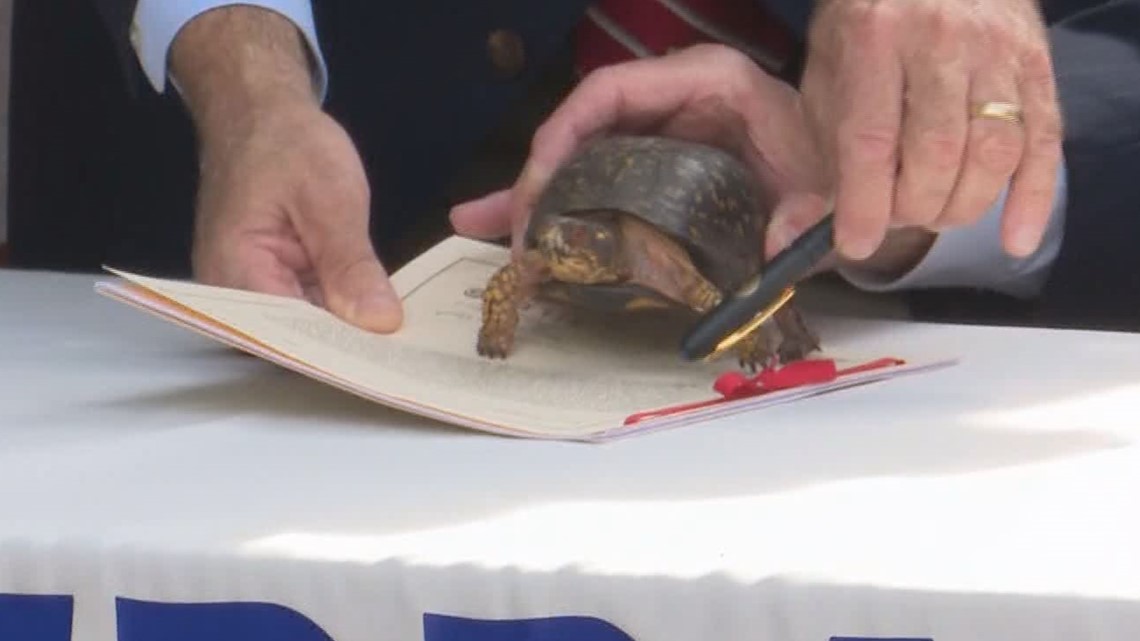COLUMBIA, S.C. — South Carolina Gov. Henry McMaster has signed into law new regulations designed to protect the state's native reptiles and amphibians.
McMaster held a ceremonial signing event Wednesday at the Riverbanks Zoo in Columbia, which has several animal conservation programs . The law was passed during the most recent legislative session.
The South Carolina Department of Natural Resources, which helped develop the new rules, say it will better regulate the sale, purchase or transfer of native reptile and amphibian species will be tightly controlled and limited to captive-bred animals that can be commercialized without harming native populations.
SCDNR says the state has been a target for people who want to illegally trade wildlife, particularly the state's turtle population. It also prevents the release of tegu lizards, an invasive species of lizard that's been spotted in the Southeast and recently made their way to South Carolina.
"This Native Reptiles and Amphibians bill, known as the 'Turtle Bill,' is a great one, because we discovered over the years that people were taking our wildlife elsewhere-, smuggling them out, smuggling in non-native species, and we had some tools to deal with it but not enough," McMaster said. " But our legislators in the House and the Senate stepped up, recognized we needed to do this, and so they've done it; and they've made us just a little bit better, a little bit stronger, a little bit better place to live, work, and raise a family."
SCDNR says Eastern box turtles, spotted turtles, and diamondback terrapins are in high demand both in the U.S. and internationally by animal traders. South Carolina didn't have a law regulating the sale of the animals, which SCDNR says led to the exploitation of the animals.
The agency says more than 200 turtles bound for the black-market turtle trade were seized from a residence in Chester County in 2019. That followed a 2018 case which saw three South Carolina men plead guilty to conspiring to illegally buy and sell rare turtles on the black market.
The new law limits the number of native turtles that an individual may possess to no more than 10 total (with individual limits of 5 on many common species and 2 on Eastern box turtles and diamondback terrapins). Residents of the state who currently have collections in excess of these limits will be given an opportunity to register with SCDNR (within 90 days) and receive a temporary permit “grandfathering” their current animals. The law also provides legal avenues for institutions such as zoos, research facilities and wildlife rehab organizations to continue their important work, also through a permitting process. In addition, the new law makes it illegal to “possess, transfer, sell, barter, trade ship or remove” from the state native reptile or amphibian species, including parts, products, eggs or offspring, in violation of a statute or a limit or permit condition established by SCDNR and directs SCDNR to promulgate regulations for the management of native reptile and amphibian species. It also prohibits the release of non-native wildlife (such as tegu lizards).





